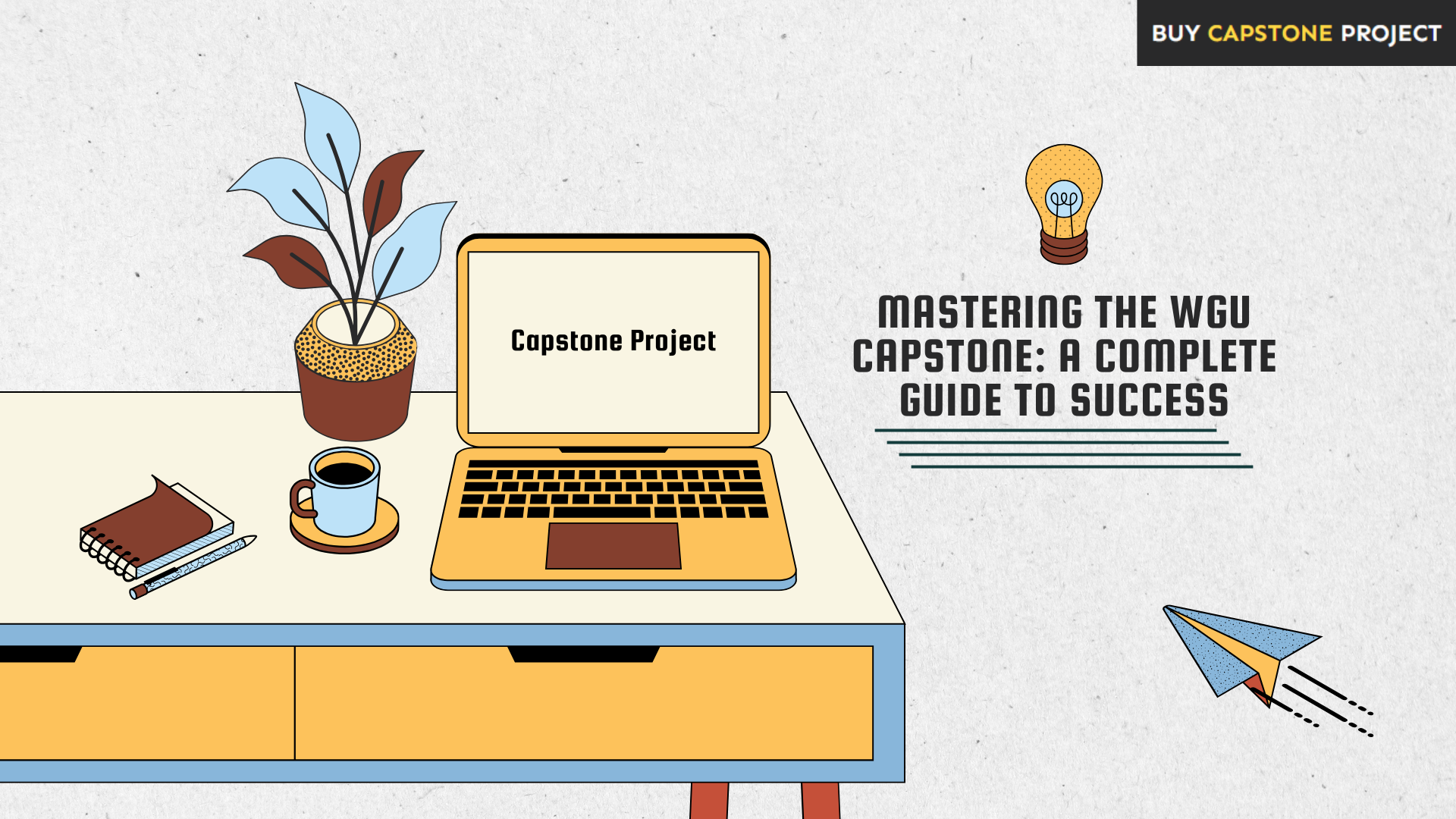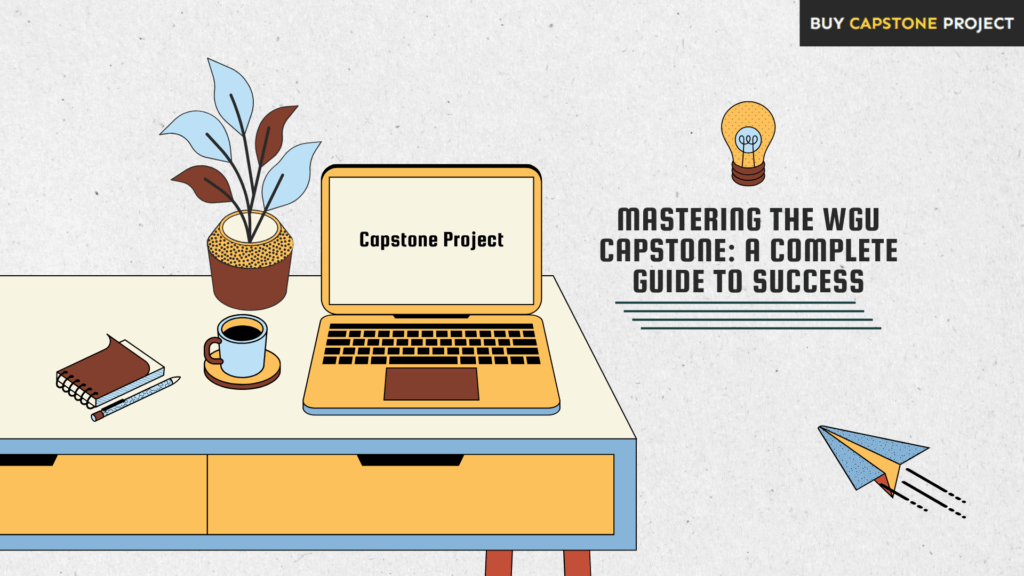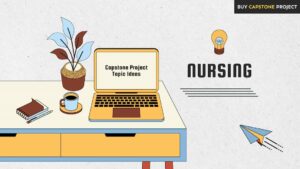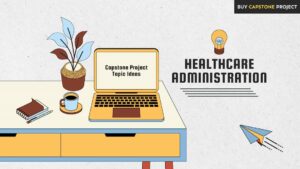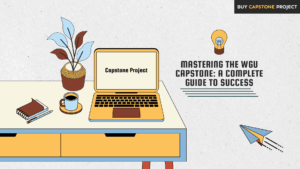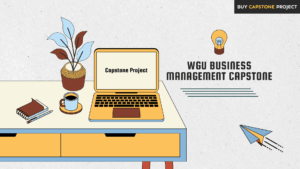The WGU Capstone is more than just the final requirement of your degree. It’s a comprehensive demonstration of everything you’ve learned throughout your studies at Western Governors University (WGU). Whether you’re earning your bachelor’s or master’s degree, your capstone project showcases your ability to apply academic knowledge to real-world scenarios.
In this guide, we’ll break down everything you need to know about the WGU Capstone, from understanding what it is and how to complete it to exploring the WGU Capstone archive for inspiration and reviewing real WGU Capstone project examples.
What Is the WGU Capstone?
At its core, the WGU Capstone project is designed to assess your cumulative learning. It’s a hands-on project where you apply theoretical concepts to solve a real or simulated business, education, IT, or healthcare problem, depending on your degree program.
WGU Capstone Project Focus by Program
Each capstone project is tailored to your specific field:
| Program Type | Typical Capstone Focus |
| Business Programs | Developing a complete business plan, marketing strategy, or financial analysis to solve real-world business problems. |
| Information Technology (IT) | Designing and implementing a system, application, or network solution that addresses organizational needs. |
| Education Programs | Conducting research-based teaching methods or creating curriculum design projects to enhance learning outcomes. |
| Health and Nursing Programs | Implementing quality improvement projects or evidence-based healthcare solutions to optimize patient care and clinical efficiency. |
The goal is simple—demonstrate your mastery of course competencies by delivering a complete, well-documented project that reflects your readiness to enter or advance in your profession.
Why the WGU Capstone Matters
The WGU Capstone isn’t just a box to check at the end of your degree—it’s a professional opportunity. Here’s why it matters so much:
1. Proves Real-World Competence
WGU’s competency-based model focuses on skills employers value. Your capstone provides tangible proof that you can apply what you’ve learned to solve real problems.
2. Enhances Career Portfolio
Your completed project can be showcased during job interviews or shared on LinkedIn to demonstrate your skills and expertise. Many graduates use their WGU Capstone project as a professional portfolio piece to demonstrate critical thinking, problem-solving, and project management skills.
3. Builds Research and Communication Skills
Throughout the project, you’ll strengthen key professional skills—research, data analysis, and report writing—that are transferable across industries.
Navigating the WGU Capstone Process
The WGU Capstone project process varies slightly depending on your degree, but most programs follow a similar structure. Below is a breakdown of each step in the process.
| Step | Description |
| Step 1: Proposal and Approval | You’ll begin by developing a project proposal outlining your objectives, scope, and methodology. Once submitted, your mentor or course instructor reviews it for approval. |
| Step 2: Research and Data Collection | Next, you’ll dive into research—gathering data, reviewing literature, and building the foundation for your project. WGU provides access to digital libraries and resources to support your work. |
| Step 3: Project Execution | This is where you put theory into practice. You’ll create the actual project solution—whether it’s a business plan, IT implementation, educational tool, or healthcare initiative. |
| Step 4: Final Report and Presentation | The capstone concludes with a detailed report and sometimes a presentation. You’ll summarize your findings, highlight challenges, and provide recommendations for future improvement. |
| Step 5: Submission and Evaluation | Finally, your project is submitted through the WGU assessment portal, where it’s evaluated against a rubric. If revisions are required, WGU mentors guide you through the process until your project meets all requirements. |
Exploring the WGU Capstone Archive
Before you start, reviewing the WGU Capstone archive can be incredibly valuable. This digital collection contains past student submissions across different programs, allowing you to:
- Understand structure and formatting expectations.
- See real-world examples of successful projects.
- Gather inspiration for topics relevant to your degree.
- Identify gaps where you can bring a new perspective.
You can access the WGU Capstone archive through WGU’s online resources or by asking your course mentor for examples that align with your program. While you can’t copy these works, studying them helps you grasp what a high-quality capstone looks like in terms of organization, tone, and analytical depth.
WGU Capstone Project Examples
Here are some popular WGU Capstone project examples from different degree areas to help you visualize what your own might look like:
1. Business Capstone Example
Title: “Implementing a Customer Retention Strategy for a Small E-commerce Business”
Overview: In this business management capstone topic, the student analyzed customer churn data, developed a loyalty program, and measured retention improvements over 6 months.
Key Skills Demonstrated: Marketing analytics, strategic planning, and financial forecasting.
2. Information Technology Capstone Example
Title: “Developing a Secure Cloud-Based Inventory System for SMEs”
Overview: The project involved creating a web-based application to manage stock levels and automate reordering, with a strong emphasis on cybersecurity.
Key Skills Demonstrated: Database design, network security, and software development lifecycle management.
3. Education Capstone Example
Title: “Enhancing Reading Comprehension through Gamified Learning Tools”
Overview: A K–12 teacher designed and implemented an interactive digital reading program to boost student engagement and comprehension.
Key Skills Demonstrated: Curriculum design, educational technology integration, and assessment methodology.
4. Healthcare Capstone Example
Title: “Reducing Hospital Readmissions through Patient Education Programs”
Overview: A nursing student developed an evidence-based program focused on medication adherence and post-discharge follow-up.
Key Skills Demonstrated: Research, healthcare policy application, and program evaluation.
Each of these WGU Capstone project examples demonstrates how students apply academic learning to real professional challenges—precisely what WGU’s competency-based education model is designed to achieve.
Tips for Writing a Successful WGU Capstone
Even if you have a great idea, executing it effectively is key. Here are some expert tips to make your WGU Capstone project stand out:
1. Start Early: The capstone is comprehensive and time-intensive. Begin planning your topic and gathering data as soon as possible.
2. Stay Aligned with Competencies: WGU evaluates projects based on how well they demonstrate mastery of course competencies. Keep these front and center.
3. Use Reliable Sources: Incorporate credible, peer-reviewed research to strengthen your arguments. WGU’s library offers excellent databases.
4. Follow the Rubric Closely: The evaluation criteria are your roadmap—address every element directly in your paper or presentation.
5. Seek Mentor Feedback: Your course mentor is your best ally. Schedule regular check-ins to refine your ideas and get feedback on drafts.
6. Polish Your Writing: Clear, professional writing makes a strong impression. Proofread carefully or use grammar tools to ensure your writing is readable.
7. Show Real Impact: If possible, include measurable results or data demonstrating your project’s effectiveness.
Overcoming Common WGU Capstone Challenges
Many students face similar hurdles during their WGU Capstone journey, including tight deadlines, unclear topics, or difficulty organizing data. Here’s how to manage them:
- If you’re stuck on a topic: Review the WGU Capstone archive or brainstorm with your mentor to find a problem that excites you.
- If time is an issue, break down the project into weekly goals. Consistent progress beats last-minute rushes.
- If your research feels overwhelming: Focus on the most relevant data. WGU’s writing center can help you structure your literature review efficiently.
- If revisions are requested: Don’t panic—mentors expect a few iterations. Use feedback constructively to improve your final submission.
Final Thoughts
Completing the WGU Capstone is a defining moment in your academic and professional journey. It’s where theory meets practice, showcasing your ability to think critically, solve problems, and make data-driven decisions in your field.
By reviewing the WGU Capstone archive, studying successful WGU Capstone project examples, and following a structured approach, you can create a project that not only fulfills graduation requirements but also strengthens your career portfolio.
Remember: your WGU Capstone isn’t just the end of your degree—it’s the launchpad for your next big step. With preparation, research, and persistence, you can craft a capstone project that reflects both your hard work and your potential to lead in your chosen field. Visit Buy Capstone Project today and get your perfect essay.
FAQs
1. What is the capstone at WGU?
The WGU Capstone is a final project that demonstrates your mastery of the skills and knowledge gained throughout your degree. It applies classroom learning to a real-world problem in your field.
2. Is a capstone harder than a thesis?
Not necessarily. A thesis is more research-focused, while a capstone is application-based. The capstone is often more practical and project-oriented, making it manageable with consistent effort.
3. What is a capstone used for?
A capstone showcases your ability to solve real-world problems, integrating academic concepts with professional skills. It serves as proof of readiness for your career or advanced studies.
4. What does it mean to graduate with a capstone?
Graduating with a capstone means you’ve completed a comprehensive project that validates your expertise and readiness to enter your professional field confidently.
